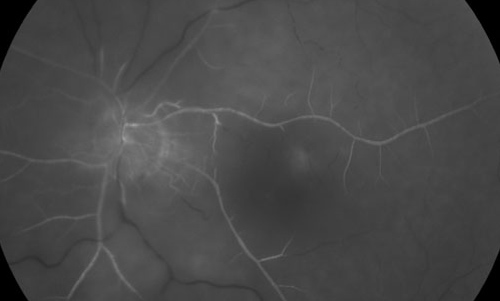
 |
Central Retinal Artery Occlusion |
 |

Central Retinal Artery Occlusion | ||
A central retinal artery occlusion is a blockage of blood flow to the retina that causes wide spread vision loss. This is a severe stroke in the eye, a very serious condition. You need to seek out a retinal specialist immediately for any sudden vision loss. | ||
| ||
An occlusion of the central retinal artery is often caused by plaque in the carotid artery, that breaks loose and travels to the retina. Underlying causes include diabetes, hypertension, cardiac disease and other vascular disorders. | ||
| ||
If you have a sudden, painless, profound loss of vision in one eye, this may be a symptom of a retinal artery occlusion. You may have noticed transient vision loss prior to this event, lasting only a short time. A stroke or TIA may precede or may follow this event. | ||
| ||
You will need a dilated retinal examination as quickly as possible. Special pictures of the blood flow in the eye, called a fluorescein angiogram will assist in determining the damage to the eye. You will receive an order to have blood work done, and possibly an ultrasound of the carotid artery, and a cardiac echocardiogram to look at the valves in your heart. You will need a thorough cardiovascular evaluation with your medical doctor. The prognosis for this condition is poor. The vision loss is usually permanent. | ||
| ||
Treatment is controversial and often unsuccessful. If you are able to see a retinal specialist within 24 hours of the vision loss, you may have an option to try treatment. In most cases, there is a limit of only 1-3 hours to successfully restore blood flow and vision to the eye. A lesser amount of vision may still be salvaged if within the first day. The most commonly ordered treatment is a paracentesis, which relieves some of the fluid pressure in the eye, and may allow greater blood flow to return to the eye. Ocular massage may also be somewhat effective. | ||
| ||
You may help prevent a central retinal artery occlusion by maintaining a healthy lifestyle. Following recommendations for hypertension and diabetes will protect you further. | ||
| ||
 |
 |
|
